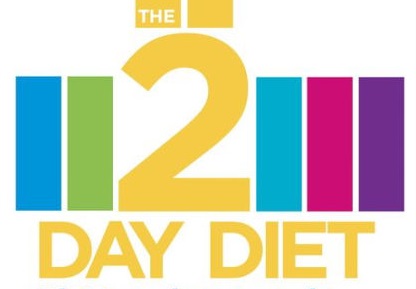
Can we really fast and feast and prevent and manage cancer?

15 Feb 16 |
by Dr Michelle Harvie, Research Dietitian, Genesis Breast Cancer Prevention Centre, University Hospital South Manchester Trust
Intermittent fasting, 5:2 or 2 Day Diets (2DD) are the latest trend in dieting, but can they really help people lose weight and prevent and manage cancer? Being overweight or obese increases the risk of 10 cancers (1) and outcome for patients with breast (2) and prostate cancer (3). Current dietary approaches all attempt to limit energy intake by approximately 25% on a daily basis (4). Daily diets are typically adhered to around 30-40% of the time, with a corresponding 30 – 40% success rate (weight loss of > 5% body weight). Hence the question arose whether might it be easier for people to focus their dieting on two strict days each week (~75% restriction) rather than having to think about a moderate 25% energy restriction every day?
Two randomised trials have directly compared 2DD to daily diets for weight loss and improvements in metabolic risk markers (insulin, lipids, blood pressure and inflammatory markers). The first compared two consecutive days of 650kcal of milk, yoghurt, fruit and vegetables to a daily 25% energy restricted Mediterranean diet (~1500 kcal: 25% protein, 45% low glycaemic load carbohydrate, 30% fat [15% monounsaturated, 7% saturated fat, 7% polyunsaturated fatty acids]) in 110 women (5). Over 6 months the mean weight loss for 2 day dieters was 5.9kg (95% CI 4.5 to 7.2), marginally, but not statistically, greater than daily dieters who lost 4.9kg (95%CI 3.7 to 6.0, p=0.63). However the 2DD had beneficial effects on metabolism during and after restricted days. Insulin resistance on non-restricted days was a mean 23% (95% CI -38.1 to −8.6) lower than daily dieters, with an additional 25% reduction during the 2 restricted days. This limited 2DD was however not much easier to follow than a daily diet.
The second study tested 3 groups (115 women) over 3 months of weight loss and 1 month of weight loss maintenance (6). Groups were:
• A low energy (650kcal), low carbohydrate, high protein 2DD and 5 days of an ad lib Mediterranean diet
• A 2DD following a 2 day ad lib low carbohydrate diet
• A daily energy restricted Mediterranean diet
Both 2DDs were more successful than the daily diet and both 2DDs performed equally well with 58-65% achieving ≥5% weight loss compared to 40% of daily dieters (p < 0.05). The success of both low carbohydrate 2DDs was due to 75% adherence, and participants did not overeat, but actually reduced their intake on unrestricted days. During the weight maintenance phase, 1 day of low carbohydrate dieting per week maintained reductions in weight, body fat and insulin resistance.
So there are some randomised data to support a 2 day diet as an alternative to daily diets for weight loss, but you won’t find a systematic or Cochrane review just yet. Intermittent diets are not suitable for children, during pregnancy, breast feeding or people with a history of eating disorders. The research to date is encouraging but we need more data on the long term success and safety of intermittent diets. The science needs to catch up with the global interest and popularity of the diet.
Our current B-AHEAD 2 (Breast Activity Healthy Eating After Diagnosis) trial is testing the 2DD in breast cancer patients receiving adjuvant chemotherapy treatment to see if it can prevent weight gain, reduce chemotherapy toxicity and improve overall health (7).
1. Renehan AG, Tyson M, Egger M, Heller RF, Zwahlen M. Body-mass index and incidence of cancer: a systematic review and meta-analysis of prospective observational studies. Lancet 2008;371(9612):569-578.
2. Chan DS, Vieira AR, Aune D et al. Body mass index and survival in women with breast cancer-systematic literature review and meta-analysis of 82 follow-up studies. Ann Oncol 2014;25(10):1901-1914.
3. Hu MB, Xu H, Bai PD, Jiang HW, Ding Q. Obesity has multifaceted impact on biochemical recurrence of prostate cancer: a dose-response meta-analysis of 36,927 patients. Med Oncol 2014;31(2):829.
4. de Souza RJ, Bray GA, Carey VJ et al. Effects of 4 weight-loss diets differing in fat, protein, and carbohydrate on fat mass, lean mass, visceral adipose tissue, and hepatic fat: results from the POUNDS LOST trial. Am J Clin Nutr 2012;95(3):614-625.
5. Harvie MN, Pegington M, Mattson MP et al. The effects of intermittent or continuous energy restriction on weight loss and metabolic disease risk markers: a randomized trial in young overweight women. Int J Obes (Lond) 2011;35(5):714-727.
6. Harvie M, Wright C, Pegington M et al. The effect of intermittent energy and carbohydrate restriction v. daily energy restriction on weight loss and metabolic disease risk markers in overweight women. Br J Nutr 2013;110(8):1534-1547.
7. B-AHEAD 2 Breast activity and healthy eating after diagnosis – 2 During chemotherapy for early breast cancer. UK Clinical Research Network Study Portfolio, 2013 (Accessed December 3, 13 A.D. http://public.ukcrn.org.uk/Search/StudyDetail.aspx?StudyID=13255).

The SCPN Newsletter: Volume 7, Issue 1
In our first issue of 2016, an update from Obesity Action Scotland on sugar, the benefits of Dryathlon and the confessions of a pedestrian, as well as the usual breakdown of cancer prevention research and news from the Scottish Cancer Prevention Network.